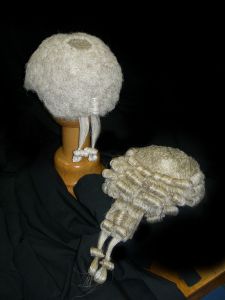

SOFTWARE bully Oracle, which pretty much put to rest all of Sun's Free software except few successful items (e.g. MySQL and VirtualBox, but not OpenOffice) and now attacks Java's integrity by preventing deviations using abuse/misuse of copyright law, is still at it. The Court of Appeals for the Federal Circuit (CAFC), one of the most ridiculous and insidious courts in the world (both corrupt and biased), let Oracle have its way against Android, essentially sending a warning shot not just to those inspired by Java but everyone who reuses names of/in interfaces. This is dangerous and it is heading for judgment by the highest court, SCOTUS.
"Just like software patents, here we have something that both Free software and proprietary software developers should be united against."According to some articles about SCOTUS, such as this report from Steven J. Vaughan-Nichols, the case that can affect so many programmers is potentially to be decided by the same court that recently defanged a lot of software patents (much to the regrets of the USPTO). Vaughan-Nichols writes: "Google has had enough of its long-running legal battle with Oracle over whether application programming interfaces (API)s can be copyrighted. The search giant has asked the Supreme Court of the United States (SCOTUS) to bypass further battles in lower courts and address the API copyright issue once and for all. SCOTUS, in return, is soliciting the Obama administration for its view of the case before moving forward."
Well, it is proceeding pretty much as expected. The British media put it like this:
The US Supreme Court hasn't decided whether it will hear arguments in the long-running dispute between Google and Oracle over Java copyrights, and it has asked the Obama administration to weigh in before it makes up its mind.
The litigation surrounding Android continued this year, with significant developments in the patent litigation between Apple Computer, Inc. (Apple) and Samsung Electronics, Inc. (Samsung) and the copyright litigation over the Java APIs between Oracle Corporation (Oracle) and Google, Inc. (Google). Apple and Samsung have agreed to end patent disputes in nine countries, but they will continue the litigation in the US. As I stated last year, the Rockstar Consortium was a wild card in this dispute. However, the Rockstar Consortium settled its litigation with Google this year and sold off its patents, so it will no longer be a risk to the Android ecosystem.
The copyright litigation regarding the copyrightability of the Java APIs was brought back to life by the Court of Appeals for the Federal Circuit (CAFC) decision which overturned the District Court decision. The District Court had found that Google was not liable for copyright infringement for its admitted copying of the Java APIs: the court found that the Java APIs were either not copyrightable or their use by Google was protected by various defenses to copyright. The CAFC overturned both the decision and the analysis and remanded the case to the District Court for a review of the fair use defense raised by Google. Subsequently, Google filed an appeal to the Supreme Court. The impact of a finding that Google was liable for copyright infringement in this case would have a dramatic effect on Android and, depending on the reasoning, would have a ripple effect across the interpretation of the scope of the “copyleft” terms of the GPL family of licenses which use APIs.